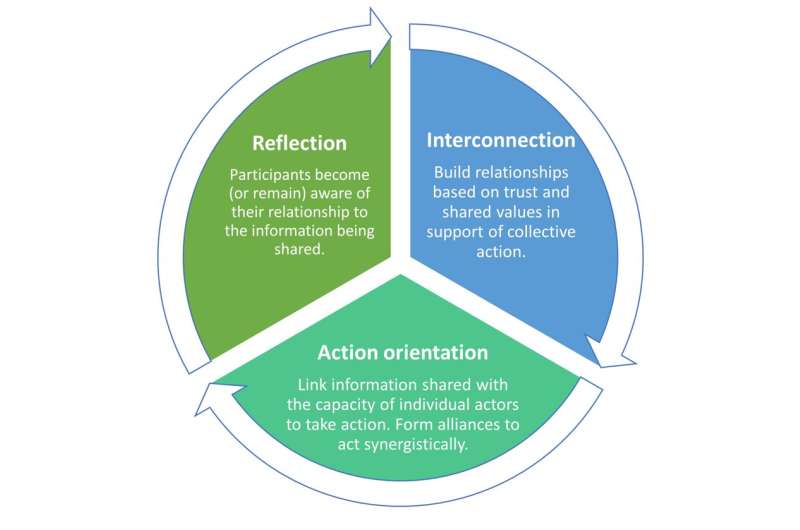This article has been reviewed according to Science X's editorial process and policies. Editors have highlighted the following attributes while ensuring the content's credibility:
fact-checked
proofread
A new climate of communication at the COP

The UN climate change conferences (COPs) are attended annually by tens of thousands of actors working on climate change topics. Outside of the formal negotiations, the communication culture is dominated by "side events," a format that relies on conventional presentations and panels. In a new commentary, RIFS scientist Kathleen Mar and co-authors make a case for reimagining these communication formats in order to strengthen the COP's role as a platform for learning and community-building.
"The combined expertise, experience, and skills of those who gather at the COP is enormous. To actually take advantage of this collective potential, we need to choose communication formats that are designed to foster productive interactions, rather than ones that simply facilitate an exchange of fixed viewpoints," says Mar. In the paper, published in the journal WIREs Climate Change, the authors argue for hosting participatory dialogs and offer concrete recommendations on how to design and facilitate such discussions.
The authors put forward reflection, interconnection, and action orientation as three principles around which communication should be designed and provide examples of appropriate facilitation practices. Among the practices they analyze are "Question & Answer" sessions. "One problem with these is that it is often only the loudest voices that get heard," says Mar.
To mitigate this dynamic, the authors suggest that rather than fielding questions directly after a presentation, the moderators should first allow time for small group or "neighbor" conversations. This invites all listeners to share their perspectives on an equal footing. In addition to setting an egalitarian tone, this "pre-discussion" increases the likelihood that a more representative set of concerns will come to the fore in a Q&A session.
Going beyond the scale of individual dialogs, the authors suggest that actors interested in new forms of dialogue and collaboration form networks and communities of practice as one path to affecting change in the overall communication culture of the COP.
"With our recommendations we aim to present a re-imagined vision of what the COP could be, particularly for the large number of non-state actors that attend. Why shouldn't the conference, outside of the negotiations, include more experimental learning labs and reflection spaces, embedded within larger, solution-oriented processes?" says Mar. Reorienting communication practices at the conferences toward learning and community building, Mar and her co-authors argue, could support collective, cooperative action to address the climate crisis.
More information: Kathleen A. Mar et al, Learning and community building in support of collective action: Toward a new climate of communication at the COP, WIREs Climate Change (2023). DOI: 10.1002/wcc.832
Provided by Forschungsinstitut für Nachhaltigkeit Helmholtz-Zentrum Potsdam




















